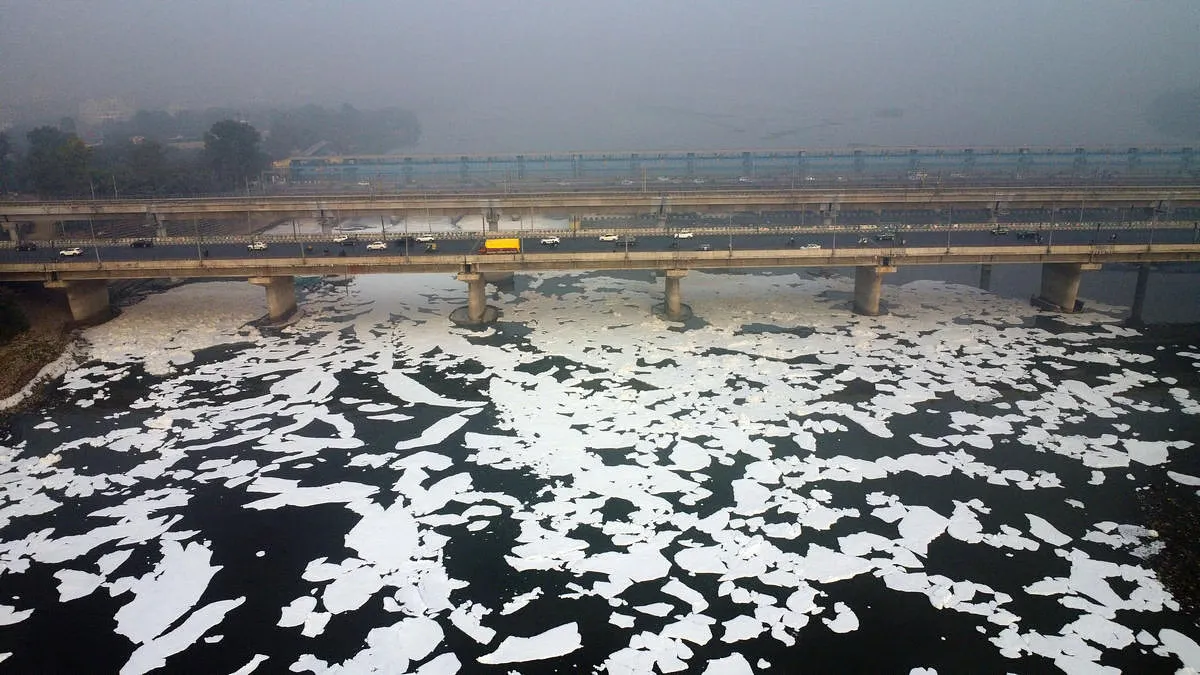- By Yashashvi Tak
- Thu, 17 Apr 2025 10:49 AM (IST)
- Source:JND
The Delhi government’s Expenditure Finance Committee, headed by Chief Minister Rekha Gupta, has approved a Rs 3,140 crore project to set up 27 decentralised sewage treatment plants (D-STPs), along with treatment facilities and related infrastructure, to help clean up the Yamuna in Delhi. Other projects cleared by the panel were the installation of electric bus charging stations at DTC and cluster bus depots in Dwarka, as well as the construction of a high-security prison in Narela.
Read More: 6 Science-Backed Reasons Why Buttermilk Is The Ultimate Summer Superdrink
This marked the first meeting of the Expenditure Finance Committee under the new government, with all ministers.
CM Rekha Gupta said, “Yamuna river is Delhi’s lifeline and its cleaning and conservation is a top priority for the Delhi government. The project approved today includes a multiphase and multi-agency plan covering drain treatment, expansion of the sewerage network, and establishment of modern STPs...We want to ensure that no untreated wastewater flows into the Yamuna. The rejuvenation of the Yamuna is not merely an environmental goal, but a responsibility to future generations that is being carried out with seriousness and urgency.”
The project will also involve laying sewer lines under these decentralised STPs, providing household sewer connections, and executing all related technical work, a government official said.
The official said, “Through these decentralised sewage treatment plants, most colonies in Delhi will be relieved from rising water pollution, foul odour, and falling groundwater levels. This STP will be built in 18 months once a tender is issued.”
The STPs will be installed at Mohammadpur Majri, Nizampur, Jaunti, and Bawana, Auchandi, Tajpur Khurd, Kanjhawala, Majri, Ghevda village, Jaunapur, Bijwasan, Salahpur, Punjab Khor, Qutubgarh, Tikri Kalan, Wajidpur Thakran, Mundka, Narela, Bawana.
D-STPs treat wastewater directly at its point of origin, eliminating the need for long-distance transportation. The city currently relies on 37 centralised STPs located far from the wastewater sources, requiring an expensive conveyance system to collect and transport water from various locations for treatment and reuse.
“The treated water from D-STPs can be used locally to rejuvenate water bodies, horticulture use and other non-drinking purposes,” the official said.

